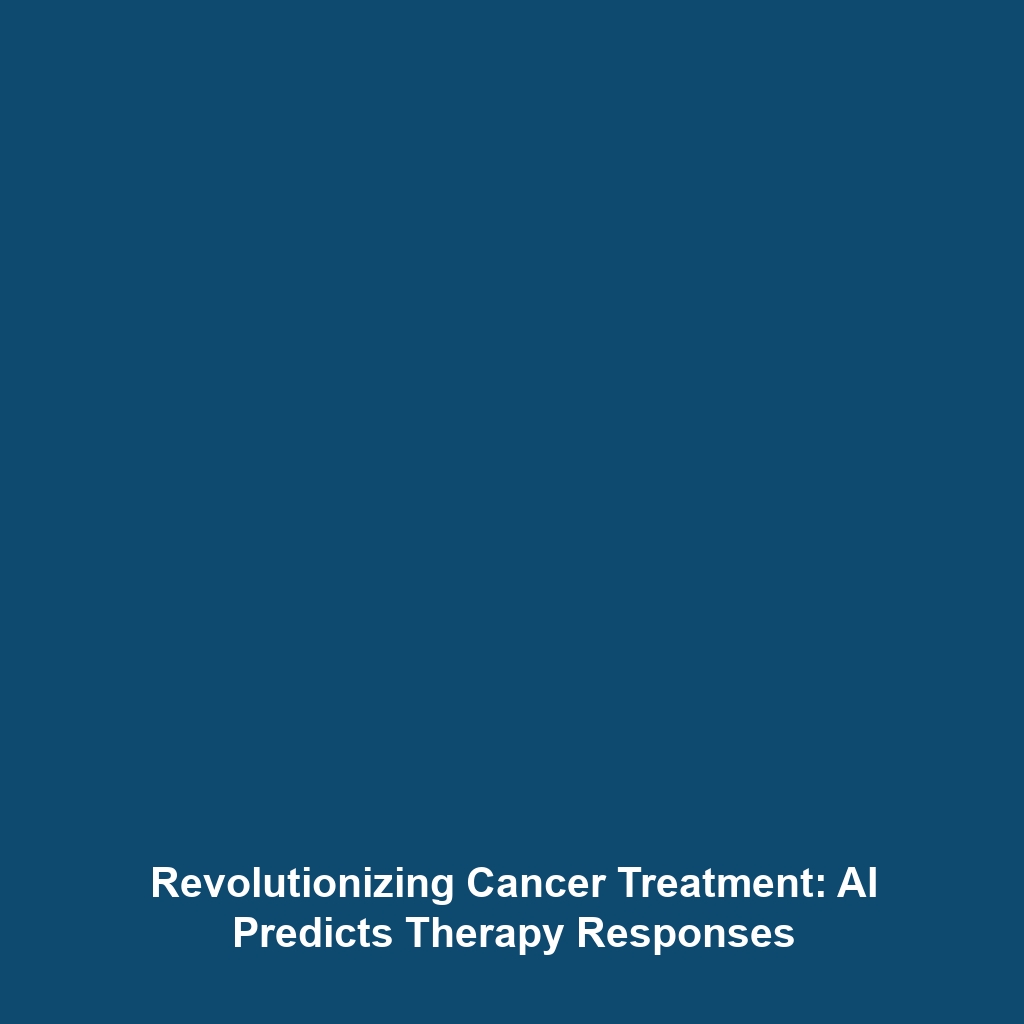Diabetes Management: AI Tools for Monitoring and Controlling Blood Sugar Levels
Introduction
Diabetes is one of the most prevalent chronic conditions globally, impacting millions of people and presenting severe health risks when not effectively managed. In recent years, artificial intelligence (AI) has emerged as a transformative force in healthcare, particularly in the realm of diabetes management. AI tools for monitoring and controlling blood sugar levels offer innovative solutions that enhance patient outcomes and simplify daily management tasks. This article delves into the significance of AI in healthcare, particularly its applications in diabetes management, addressing its concepts, applications, challenges, and future innovations.
Key Concepts
Understanding how AI aids in diabetes management requires insight into several major concepts:
- Continuous Glucose Monitoring (CGM): AI-powered CGM systems track blood sugar levels in real time, enabling timely decisions and personalized treatment plans.
- Predictive Analytics: AI algorithms analyze historical data to forecast potential blood sugar fluctuations, allowing preemptive action.
- Personalized Medicine: AI tools customize treatment based on individual patient data, thus optimizing diabetes care.
These principles illustrate how AI serves as a crucial ally in the comprehensive framework of AI in healthcare, enhancing both monitoring and management of diabetes.
Applications and Real-World Uses
The implementation of AI tools in diabetes management has demonstrated significant real-world applications. Some noteworthy examples include:
- Automated Insulin Delivery Systems: These systems leverage AI algorithms to adjust insulin delivery in real time based on blood glucose readings, showcasing how diabetes management is enhanced through AI technology.
- Telehealth Monitoring: AI tools facilitate remote patient monitoring, allowing healthcare providers to track patients’ blood sugar levels and intervene when necessary.
- Behavioral Insights: AI applications analyze user behavior to promote lifestyle modifications that can lead to better diabetes control.
Such applications illustrate how AI in healthcare is revolutionizing diabetes management by providing effective and timely care solutions.
Current Challenges
Despite the advancements in diabetes management through AI, several challenges persist, including:
- Data Privacy Issues: Patient data security is paramount, as breaches can lead to significant ethical and legal issues.
- Lack of Standardization: The absence of universally accepted AI protocols can lead to inconsistencies in diabetes management.
- Integration with Existing Systems: Challenges in integrating AI tools smoothly into current healthcare systems can limit their widespread adoption.
Addressing these challenges is essential for maximizing the potential of AI in diabetes management.
Future Research and Innovations
The future of Diabetes Management through AI looks promising, with several innovative avenues on the horizon:
- Advanced Machine Learning Models: Future research is likely to focus on creating more sophisticated machine learning frameworks that can predict blood sugar levels with even higher accuracy.
- Wearable Devices: Innovations in wearable technology are expected to produce smarter devices that offer real-time insights and automated insulin delivery.
- AI-Enabled Decision Support Systems: These systems will aid healthcare providers by analyzing patient data to make informed treatment recommendations.
These breakthroughs hold the potential to significantly improve diabetes management, heralding a new era in AI in healthcare.
Conclusion
In conclusion, AI tools for monitoring and controlling blood sugar levels play a pivotal role in modern diabetes management. As the integration of AI in healthcare continues to grow, the potential for improved patient outcomes and streamlined care processes becomes increasingly evident. For further exploration of related topics, check out our articles on the future of AI in healthcare and the latest research in diabetes management. It is crucial to remain informed and proactive in the adoption of these transformative technologies.


